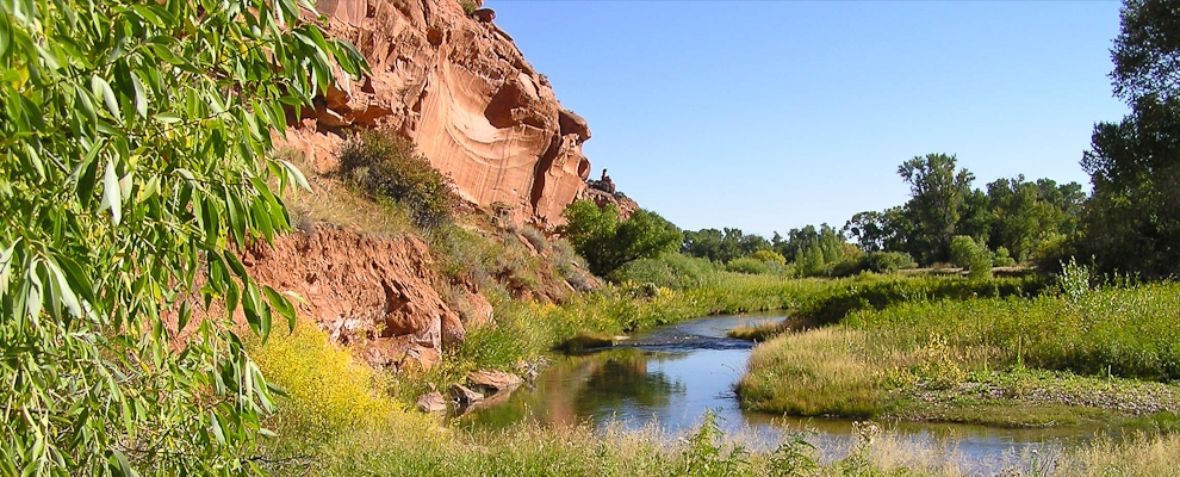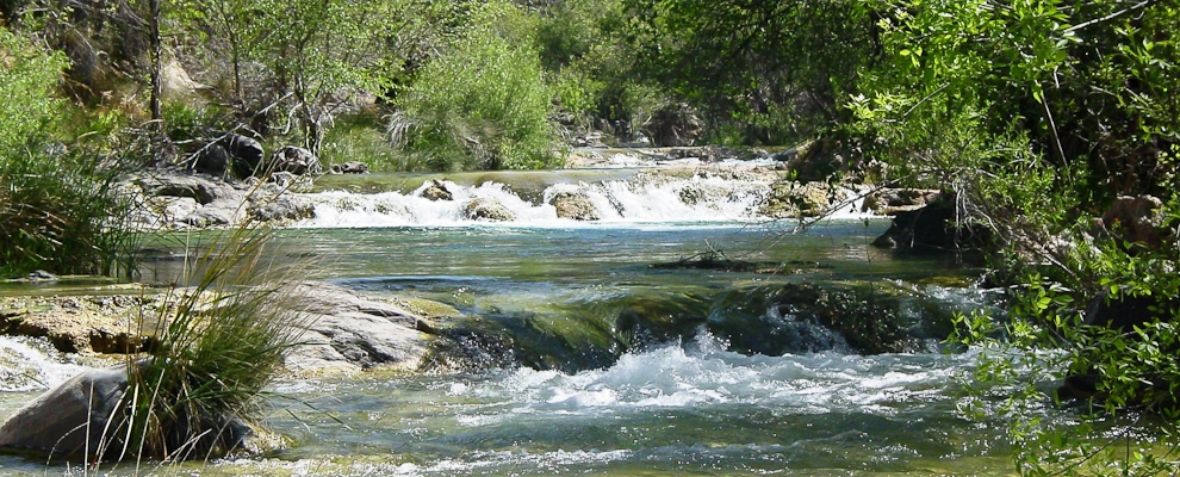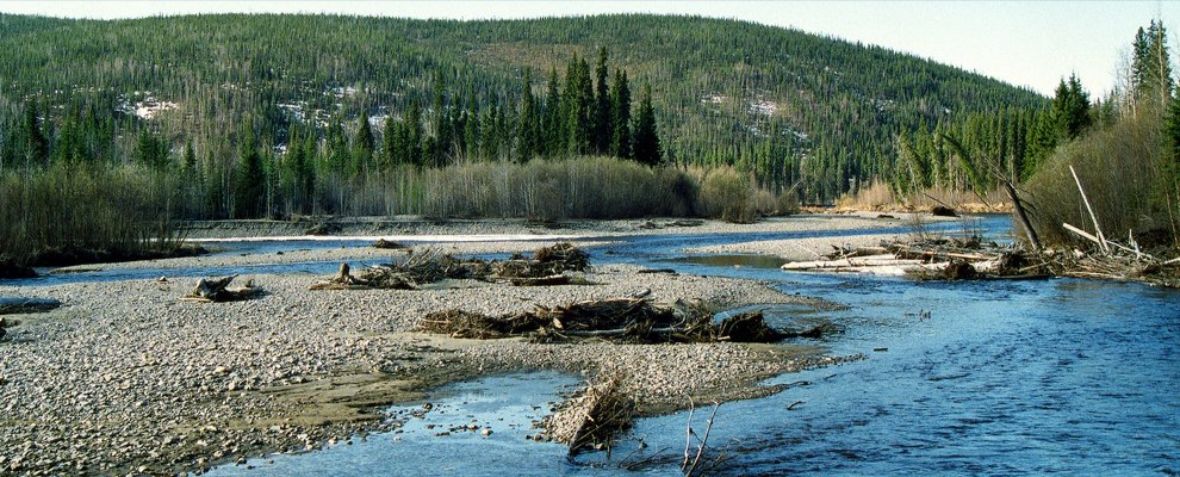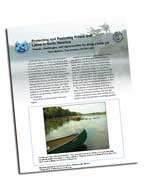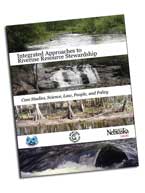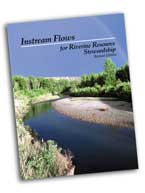| Mission | Vision | Principles | Connect | |||
|---|---|---|---|---|---|---|
| The mission of the IFC is to improve the effectiveness of state, provincial, and territorial instream flow and water level programs and activities in conserving (protecting, maintaining, and restoring) aquatic ecosystems. | The vision of the IFC is that each water body in Canada and the United States has flow and water level regimes that sustain ecological integrity. | The work of the IFC is grounded in our public trust responsibility to conserve the integrity of natural aquatic ecosystems, not just for intrinsic reasons, but for the societal values these ecosystems provide. |
Establishing a new Instream Flow and Water Level Conservation Training, Research, and Development Center: Progress Report
October 20, 2023 Update: Final IFWLC Center Feasibility Assessment Completed
|
The results of the completed assessment portion of this project established the need, support, strategies, and pathways forward to develop the Center and is available for download. Questions and comments can be provided below.
|
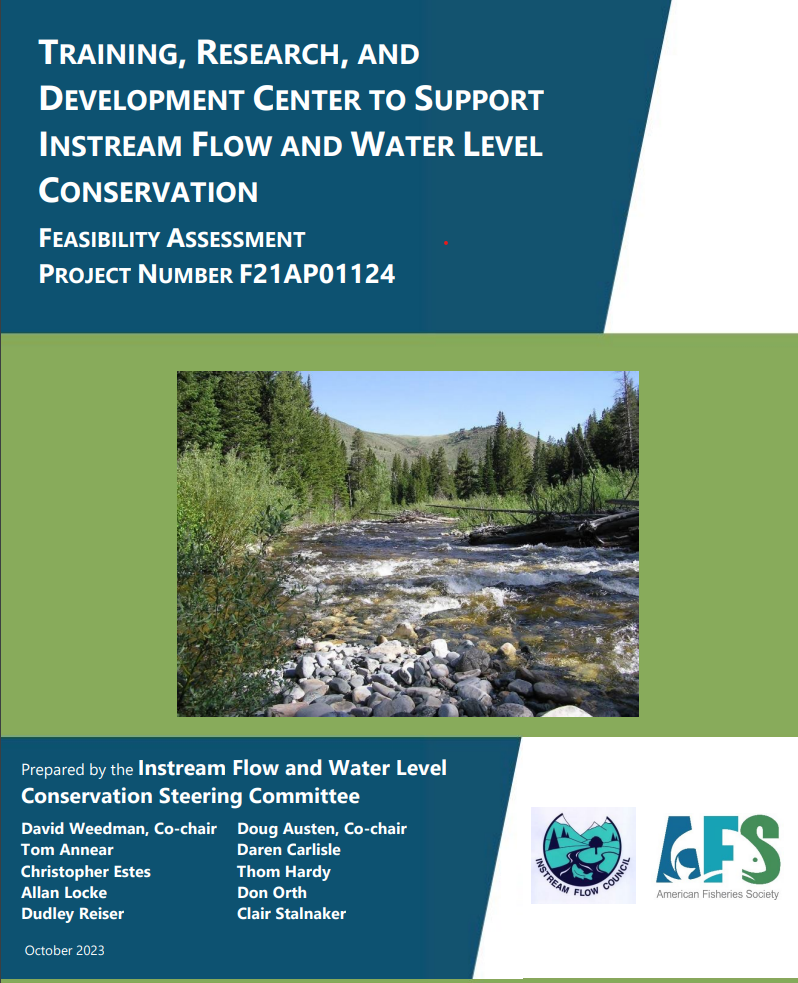 |
Citation:
Weedman, D., D. Austen, T. Annear, D. Carlisle, C. Estes, T. Hardy, A. Locke, D. Orth, D. Reiser, and C. Stalnaker. 2023. Training, research, and development center to support instream flow and water level conservation: Feasibility assessment. Multistate Conservation Grant Project Number F21AP01124, Wildlife and Sport Fish Restoration. Instream Flow and Water Level Conservation Steering Committee. Instream Flow Council and American Fisheries Society. 78 p.
What’s Next?
The next project steps will include crafting a business plan to facilitate implementation of the assessment recommendations and execution of other preliminary actions required to establish and operate the Center. Future updates will be posted in 2024.
Background:
For nearly two decades, interdisciplinary instream flow related conservation (protection, restoration and enhancement) training, research and development services were provided under the direction of the federal Cooperative Instream Flow Service Group (CIFSG) in Fort Collins, Colorado. After that group ceased to exist in 2001, no equivalent centralized uniform source of instream flow and water level conservation (IFWLC) training and support services has been established.
Many who received training by the CIFSG have subsequently retired or moved to other jobs. As a result, this interdisciplinary water conservation field has been losing a central focus, potentially leading to diminished knowledge, mentorship, and leadership for quantifying the effects of water uses, management, and research on effective conservation of instream flow and water levels on fish, wildlife, and habitat.
These and related concerns are being addressed by the Instream Flow Council (IFC) and American Fisheries Society (AFS) through a multi-state conservation grant project to first assess the needs and support for establishing a new IFWLC training, research, and development center (Center), and contingent on positive outcomes of the assessment, develop strategies and pathways forward to establish and operate the Center.
As part of this process, the IFC and AFS established a steering committee (SC) comprised of experts representing governmental, non-governmental, academic, and private sectors with extensive experience in integration of the interdisciplinary development, training, and application of IFWLC methods, and who have remained actively involved in water resource allocation issues:
Steering Committee
Co-Chair David Weedman, IFC Past President
Co-Chair Doug Austen, AFS Executive Director
Tom Annear
Daren Carlisle
Christopher Estes
Thom Hardy
Allan Locke
Donald Orth
Dudley Reiser
Clair Stalnaker
International Instream Flow Program Initiative
The International Instream Flow Program Initiative summarizes the status and growth of state and provincial instream flow programs over a ten-year period. The report was written to condense the information in the full IIFPI report and previous IFC books into a relatively short feature article-type document for the general public with the hope that it might be easier to read and understand than the books and reports upon which it’s based. The lead author for this document was Chris Madson who is the editor and publications supervisor of the Wyoming Wildlife magazine.
Click here for more information
Integrated Approaches to Riverine Resource Stewardship: Case Studies, Science, Law, People, and Policy
Authored by nine instream flow specialists from agencies in the U.S. and Canada, as well as a legal expert from the University of Nebraska, this book provides a detailed description of several case studies of riverine ecosystem management throughout North America as well as several other related topics. In addition to the detailed descriptions of eight case studies, you will also find examples of monitoring techniques and adaptive environmental assessment and management.
Click here for more information
Available at the American Fisheries Society bookstore
Instream Flows for Riverine Resource Stewardship
The revised edition of “Instream Flows for Riverine Resource Stewardship” is a comprehensive and in-depth treatment of the science, legal, institutional, and public policy aspects of instream flows. The first edition was published in March 2002 and sold out two printings without any promotion. Agency managers, consultants, academicians, legal experts, and libraries all found the book a valuable resource. In response to the many positive comments received, the revised edition was published in 2004 to add new text, reorganize the content, and provide over 100 illustrations to better describe the concepts of instream flow management.
Click here for more information
Available at the American Fisheries Society bookstore
Recommended citation
Annear, T., I. Chisholm, H. Beecher, A. Locke, P. Aarrestad, C. Coomer, C. Estes, J. Hunt, R. Jacobson, G. Jöbsis, J. Kauffman, J. Marshall, K. Mayes, G. Smith, R. Wentworth, and C. Stalnaker. 2004. Instream Flows for Riverine Resource Stewardship, Revised Edition. Instream Flow Council, Cheyenne, WY. 268 pp.
Managing Rivers, Reservoirs, and Lakes
in the Face of Drought
Practical Tools and Strategies for Sustaining and Protecting Ecological Values of Water
Fort Collins, Colorado April 24-26, 2018
Thank you to all speakers and attendees who helped
make FLOW 2018 a success!
View and download program and presentations

